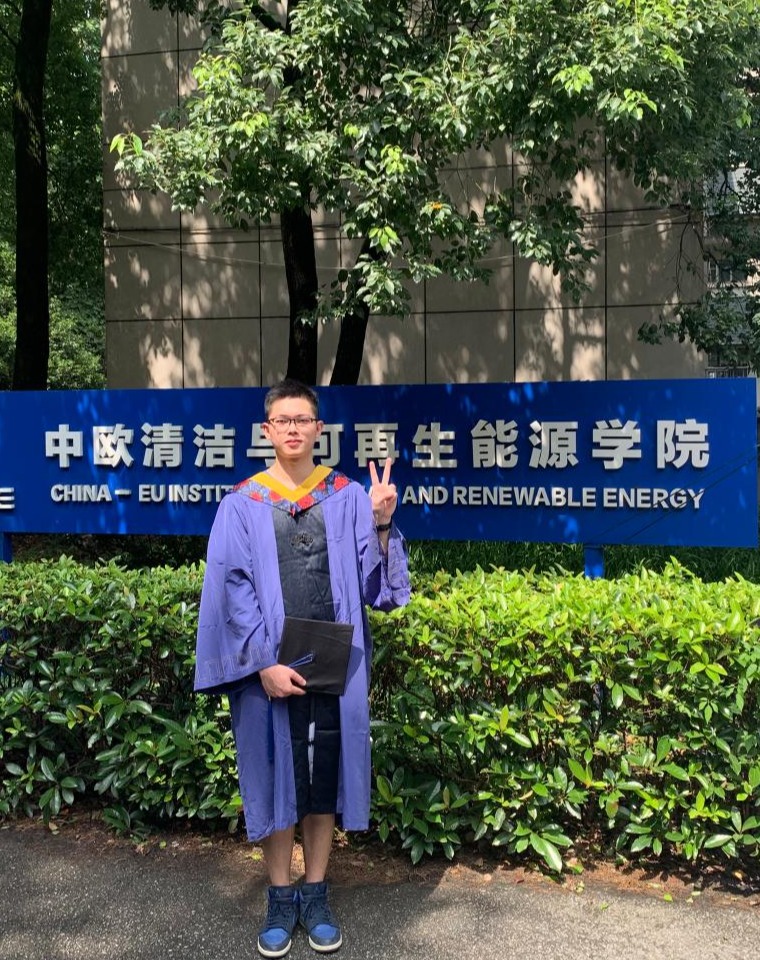Zhang Muyi, a Class 2017 alumnus of ICARE, has obtained a full scholarship from Sweden Wallenberg Foundation (about RMB 1.2 million/4 years). During his postgraduate study, Zhang Muyi published 8 papers, including 3 papers in the top journal of SCI zone 1 and 1 EI paper as the first author, 3 patents and 221 academic citations by Google Scholar. In the graduation season, he chose to go abroad for further study, and successively obtained the doctoral offer from University of Manchester (Electrical and Electronic Engineering), University of Bristol (Applied Physics) and other universities in the UK. Finally, he chose the Department of Applied Physics of Linkoping University in Sweden.
The curriculum of ICARE is very intensive. Therefore, in the first semester of postgraduate study, Zhang Muyi will focus on the courses during the day, and study semiconductor physics and other professional knowledge in the office at night. He officially entered the research topic at the end of the first semester. The second semester is especially busy for Zhang Muyi, because the courses and research are promoted at the same time. In his own words, it is "Life is either taking classes in ICARE or doing research in laboratory." Zhang Muyi believed that if you invested enough time, you could always find a balance between high-density courses and fast-paced research.

When talking about the breadth of the ICARE's curriculum, Zhang Muyi was full of gratitude. He felt that he benefited the most from it, which gave him a certain understanding of many fields beyond his research direction. Zhang Muyi further explained, "for example, although my current doctoral research direction is physics, recently I have found the possibility of research cooperation with the professor who taught me the course of Energy and Environment before. I hope I can make interesting scientific research work in the interdisciplinary fields." In addition, he also said that he benefited greatly from the “all English teaching mode”. Although he was stressed at the beginning, his English level was significantly improved by actively interacting with EU professors.

Zhang Muyi carried out his research work in the direction of copper-based sulfide thin film solar cells, explored a new type of solar absorption layer material, and applied it to solar cells, which increased the photoelectric conversion efficiency of the battery reached 2.65% from 0. Relevant achievements have been published in the journals of Nano Energy, ACS Applied Materials & Interfaces, and Frontiers of Optoelectronics. In addition, he also studied the X-ray scintillation detector and made some progress: first, he studied the luminescence mechanism of metal halide defect bound exciton and applied it to dynamic X-ray imaging. The relevant results have been published in Advanced Functional Materials; second, he invented a scintillation detector with optical waveguide structure to realize high-resolution steady-state X-ray imaging. Relevant results have been published in Nano Letters.

"Personally, without the platform provided by ICARE, I should not find my own way like this." Zhang Muyi said that ICARE not only left him a perfect three-year memory, but also provided him with a lot of resources and opportunities. This learning experience has greatly improved his ability beyond his expectations.



